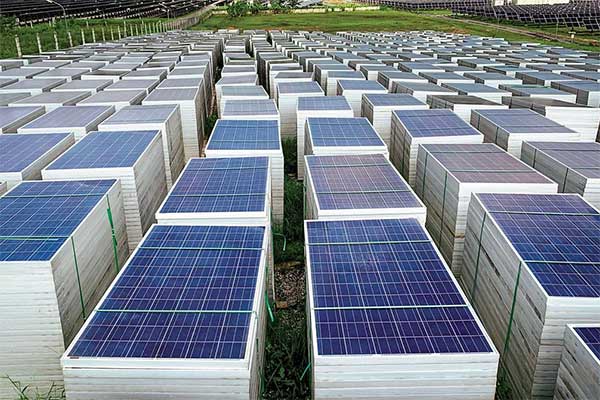- Over 800K tonnes of expired solar panels are anticipated to reach Canada’s landfills by 2050 unless something changes.
- This company wants to change that.
- Their pilot project to keep expired panels in use has recovered close to 700 panels and is currently testing and refurbishing them for future use.
The typical lifespan of most solar panels is 20 years.
According to the International Renewable Energy Agency, a devastating 800,000 tonnes of expired solar panels are anticipated to reach Canada’s landfills by 2050 unless something changes.
With a booming Alberta solar industry, thousands of solar panels are expected to reach their two-decade lifespan in the next few years. The Alberta Recycling Management Authority (ARMA) is striving to prevent an upcoming wave of expired solar panels out of landfills.
Their pilot project to keep expired panels in use has recovered close to 700 panels and is currently testing and refurbishing them for future use.
Brad Shutlz, ARMA’s CEO, is hoping to have a solution before the problem intensifies, “I think what we’re experiencing right now is a calm before the storm. So we’re going to start seeing these coming in by the hundreds of thousands.”
Alberta’s existing electronics recycling program does not include solar panels. ARMA has been working on a pilot project to change this for the past two years.
The initial aim of ARMA’s project was to better understand the volume of expired panels already out there and the challenges to recycling the various materials.
Shutlz explains, “Working with our processors, we have come up with a method of funding them to go to all these collection sites, bring it back to their facilities and recycle it and just understanding the challenges, and the cost.”
Recovered solar panels undergo testing to determine how much production might be left and identify any potential safety concerns with continuing towards refurbishing the panel.
Darren Dunfield, a research lead at NAIT’s Centre For Grid Innovation, hopes to eventually automate the panel evaluation process.
“We need processes that can rapidly test, discard and move to refurbishment,” Dunfield said. “So expanding the speed that we do the testing, expanding the refurbishment ability of how many more we can salvage. Ultimately for me it’s about removing them from the waste stream.”
Alberta doesn’t yet have a system to use refurbished solar panels to generate electricity for the province’s power grid. This is due to issues with certification and insurance.
However, ARMA considers refurbished solar panels a practical option for farmers trying to cut back on low-end energy use.
Dunfield is training others, such as the owner of Hi-Tech Recyclers, Mark Schell, to successfully evaluate the hundreds of already recovered solar panels.
ARMA’s pilot is expected to wrap up this month.
According to Miguel Racin, press secretary for Alberta’s minister of environment and protected areas, the province is actively exploring ways to continue this vital work.










Comments